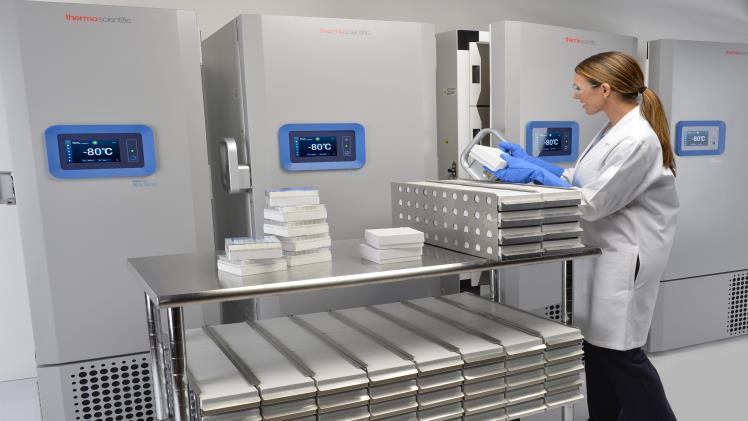In the age of accessible technology and the democratization of science, small ultra-low freezers have emerged as unsung heroes, enabling individuals to conduct groundbreaking research within the confines of their homes. The allure of home laboratories, citizen science projects, and DIY scientific experiments lies not only in the pursuit of knowledge but also in the creative freedom they offer. Within this landscape, small ultra low freezer have found a niche, empowering enthusiasts and professionals alike to explore the wonders of science. In this exploration, we unravel the pivotal role played by these compact freezers in fostering scientific curiosity and innovation at home.
Empowering Citizen Scientists: The Rise of Home Laboratories
In recent years, home laboratories have become hubs of scientific exploration, allowing amateur scientists and hobbyists to delve into various disciplines. Small ultra-low freezers play a crucial role in these setups, providing the essential cold storage needed to preserve biological samples, chemicals, and reagents. Whether it’s studying genetic mutations, experimenting with cell cultures, or exploring biochemistry, these freezers ensure that sensitive materials remain viable and stable for extended periods.
DIY Scientific Experiments: Unleashing Creativity
DIY scientific experiments encompass a vast array of projects, from electronics and robotics to biology and chemistry. Small ultra-low freezers serve as integral components, especially in biological and medical experiments. Enthusiasts keen on exploring cryopreservation techniques, conducting protein crystallization studies, or even experimenting with tissue engineering rely on these freezers to maintain the integrity of their specimens. The precise temperature control offered by these compact units is paramount for the success of such experiments.
Medical Transport Boxes: Safeguarding Samples on the Go
Beyond home laboratories, small ultra-low freezers also find applications in medical transport. Medical transport boxes equipped with ultra-low temperature capabilities ensure the safe transit of critical biological samples, vaccines, and medications. These boxes maintain a consistent temperature, preserving the integrity of the contents during transit, whether it’s across town for urgent medical needs or to remote locations for research purposes. Their portable nature makes them invaluable tools for medical professionals and researchers working in challenging environments.
Enabling Research in Remote Locations: Field Studies and Conservation Efforts
Field studies and conservation efforts often take researchers to remote locations where access to traditional laboratory facilities is limited. Small ultra-low freezers, combined with medical transport boxes, facilitate on-site research. Scientists studying wildlife biology, ecology, or environmental science can store samples such as DNA, tissues, or plant specimens at ultra-low temperatures, ensuring their suitability for analysis upon return to conventional laboratories.
Promoting STEM Education: Inspiring the Next Generation
Small ultra-low freezers play a pivotal role in inspiring the next generation of scientists. In educational settings, these compact freezers provide students with hands-on experiences in biology and chemistry. Students can explore topics like cell biology, genetics, or microbiology, conducting experiments that mirror real-world scientific practices. By having access to ultra-low temperature storage, students gain a deeper understanding of the importance of proper sample preservation, laying the foundation for future scientific endeavors.
Fostering Collaborative Citizen Science Projects: Crowd-Sourced Discoveries
Citizen science projects, which involve the collaboration of enthusiasts and professionals in scientific research, often require the storage of diverse biological samples. Small ultra-low freezers facilitate these projects by allowing participants to store and share samples securely. Whether it’s studying local flora and fauna, monitoring environmental changes, or researching rare diseas
es, these freezers enable the seamless exchange of samples, fostering collaborative efforts in the scientific community.
Challenges and Innovations: Pushing the Boundaries of Home Science
While the role of small ultra-low freezers in home laboratories and DIY experiments is invaluable, challenges persist. Limited space, energy efficiency, and the need for continuous power sources are some of the hurdles faced by home scientists. Innovations in compact freezer technology, such as energy-efficient cooling systems and portable power solutions, address these challenges. Additionally, advancements in insulation materials enhance temperature stability, making these freezers more reliable for long-term storage.
Conclusion: Empowering Discovery Beyond Traditional Laboratories
The exploration of small ultra-low freezers in home laboratories, citizen science projects, and DIY scientific experiments signifies a paradigm shift in the way we approach scientific discovery. These compact yet powerful tools democratize science, enabling enthusiasts, students, and professionals to explore their curiosities and make meaningful contributions to various fields. When coupled with the convenience and reliability of medical transport boxes, these freezers extend their impact to remote locations and urgent medical needs, ensuring the integrity of vital samples.

